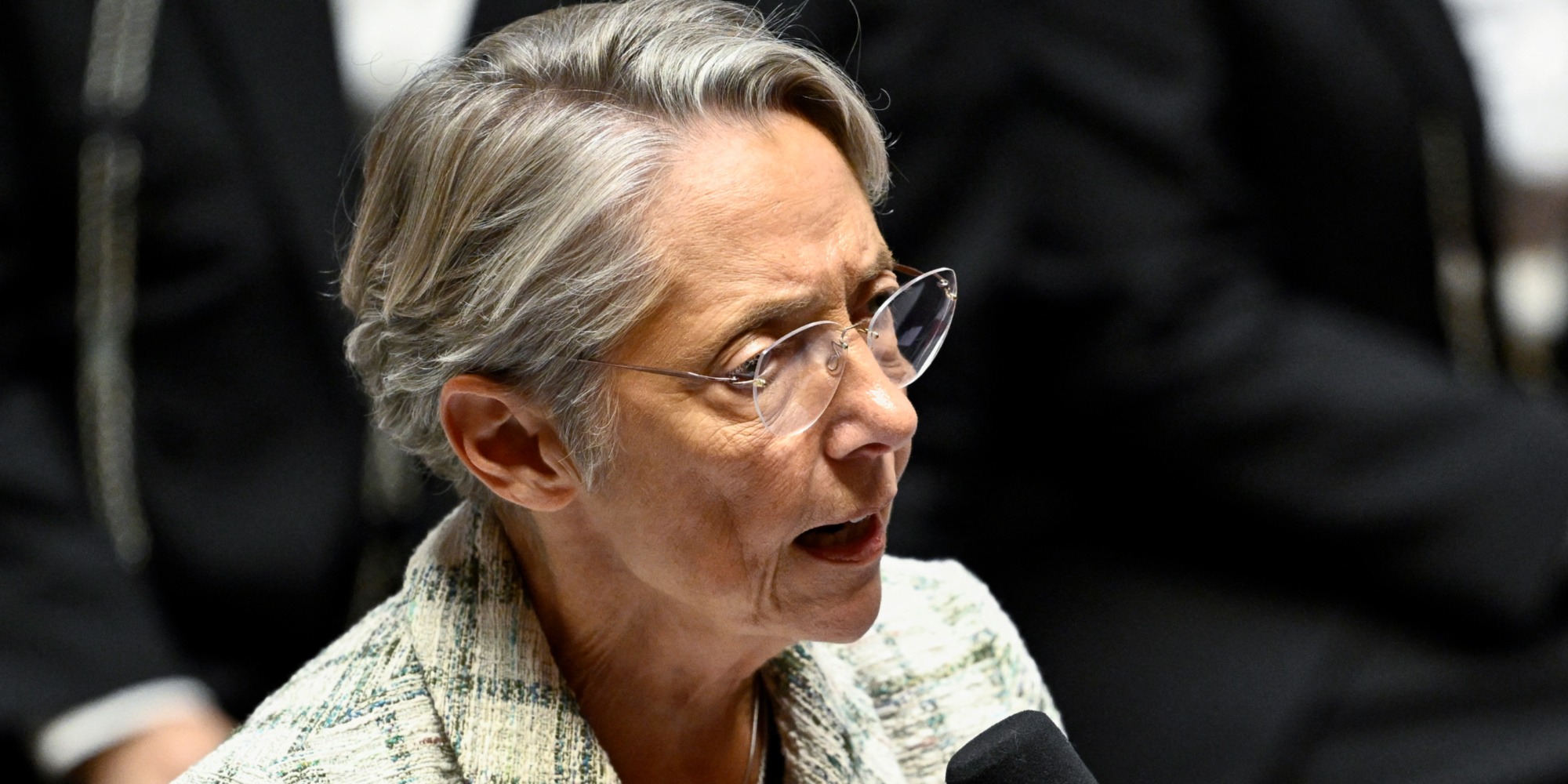Mayalène Trémolet with AFP / Photo credit: JULIEN DE ROSA / AFP
modified to
2:12 p.m., October 27, 2023
The government will ask prefects to no longer allocate housing in priority neighborhoods to households in greatest difficulty, in order to promote social diversity, Prime Minister Elisabeth Borne announced on Friday.
“I therefore ask the prefects to no longer settle, through the allocation of housing or the creation of accommodation places, the most precarious people in the neighborhoods which already concentrate the most difficulties,” declared the head of government at the the outcome of the Interministerial Committee of Cities (CIV), held in Chanteloup-les-Vignes in Yvelines. This CIV, postponed several times, was designed to provide social and structural responses to the difficulties of working-class neighborhoods, four months after this summer’s riots and the day after a first round of rather security-related announcements.
“All difficulties cannot be gathered in one place”
These are the households recognized as “Dalo”, for “enforceable right to housing”, which will no longer have to be allocated housing in the priority districts of the city policy (QPV), specified Matignon. The prefects will also be instructed to stop the creation of new emergency accommodation places, intended for homeless people, in these same neighborhoods.
Dalo households have a right to housing recognized by the courts and must be given priority in the allocation of social housing. Nearly 35,000 obtained recognition of this right in 2022 and more than 93,000 remain awaiting rehousing despite this recognition, the vast majority in the Paris region. “All the difficulties cannot be gathered in the same place. Diversity is an opportunity. It is necessary,” insisted Elisabeth Borne.
A fund of 300 million euros over three years
The head of government also raised the issue of employment and assured that the major financial investment was focused on this issue of work, integration, and the fight against discrimination. “Even if unemployment falls in our neighborhoods, it remains too high and much higher than the rest of the territory. We must reach out to those who are furthest from employment, help them find training or provide them with the necessary support “. The Prime Minister thus announced the deployment of a fund of 300 million euros over three years in favor of associations. Half of this amount must go to the residents of the neighborhoods.
The objective is to improve life in these neighborhoods through the deployment of republican action forces or the creation of new health centers. Announcements which complement the measures presented yesterday in front of several hundred mayors at the Sorbonne. Elisabeth Borne announced greater repression of minors responsible for damage.
“Resilient neighborhoods”
Finally, education, a priority according to many elected officials to reduce inequalities between working-class neighborhoods and the rest of the territory, benefits from several measures: the extension of educational cities, where support for students is reinforced, and the opening guarantee of colleges from 8 a.m. to 6 p.m. from the start of the 2024 school year. Libraries will also see their opening hours extended in 500 neighborhoods, promises Matignon.
And the geography of priority education, from which establishments benefit from more resources, will be gradually reformed to match exactly that of the QPVs. For the ecological transition of working-class neighborhoods, the “Resilient Neighborhoods” program, aimed at greening city policy, will concern 24 additional neighborhoods, with 250 million euros allocated in this direction compared to 100 million previously.
The government also wants to double the share of the Green Fund, endowed with 2 billion euros, allocated to QPV, to bring it to 15%, and will present before the end of the year a bill to promote the renovation of co-ownerships. degraded, the correct maintenance of which is no longer ensured due to an accumulation of unpaid charges.
